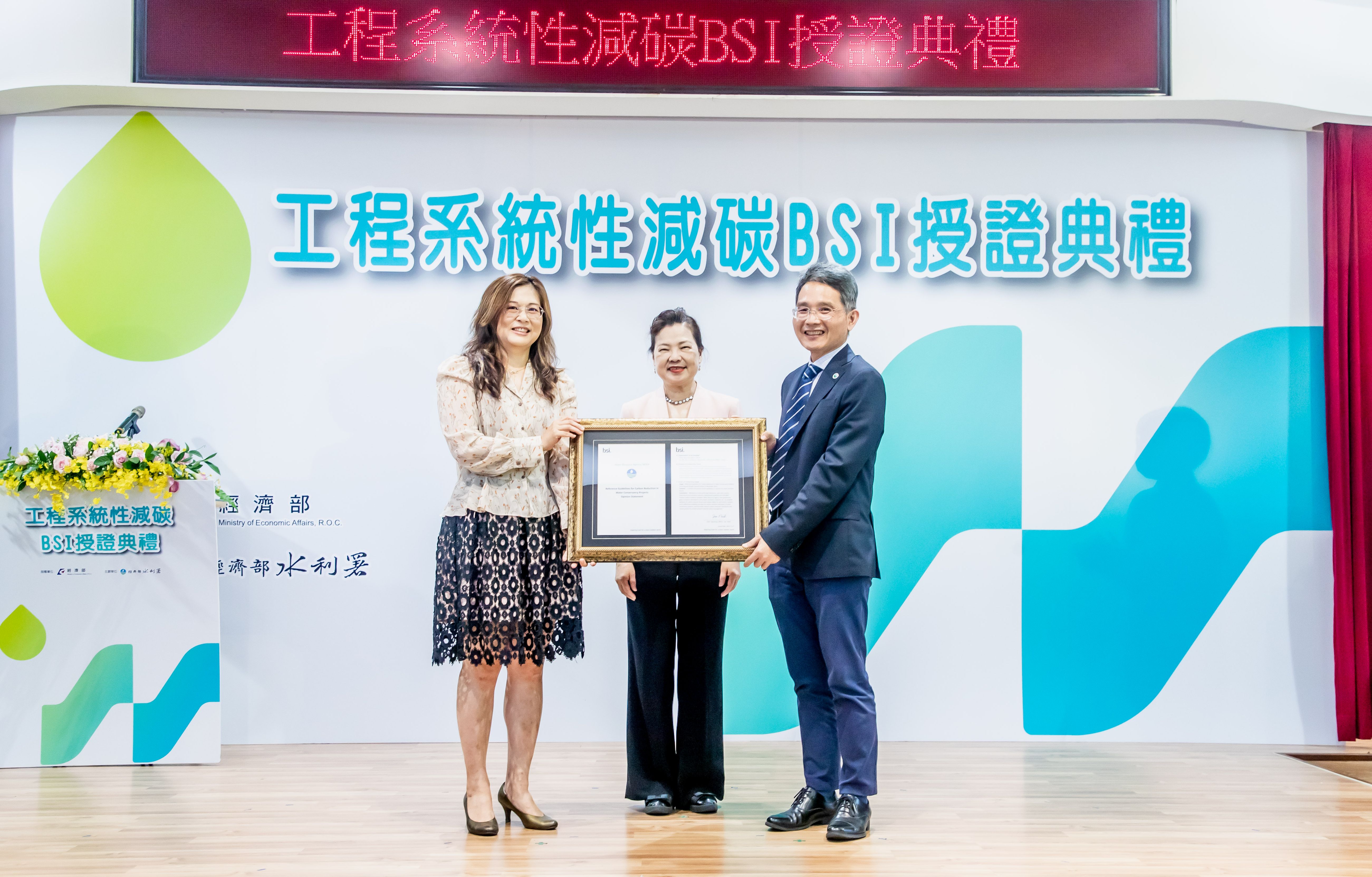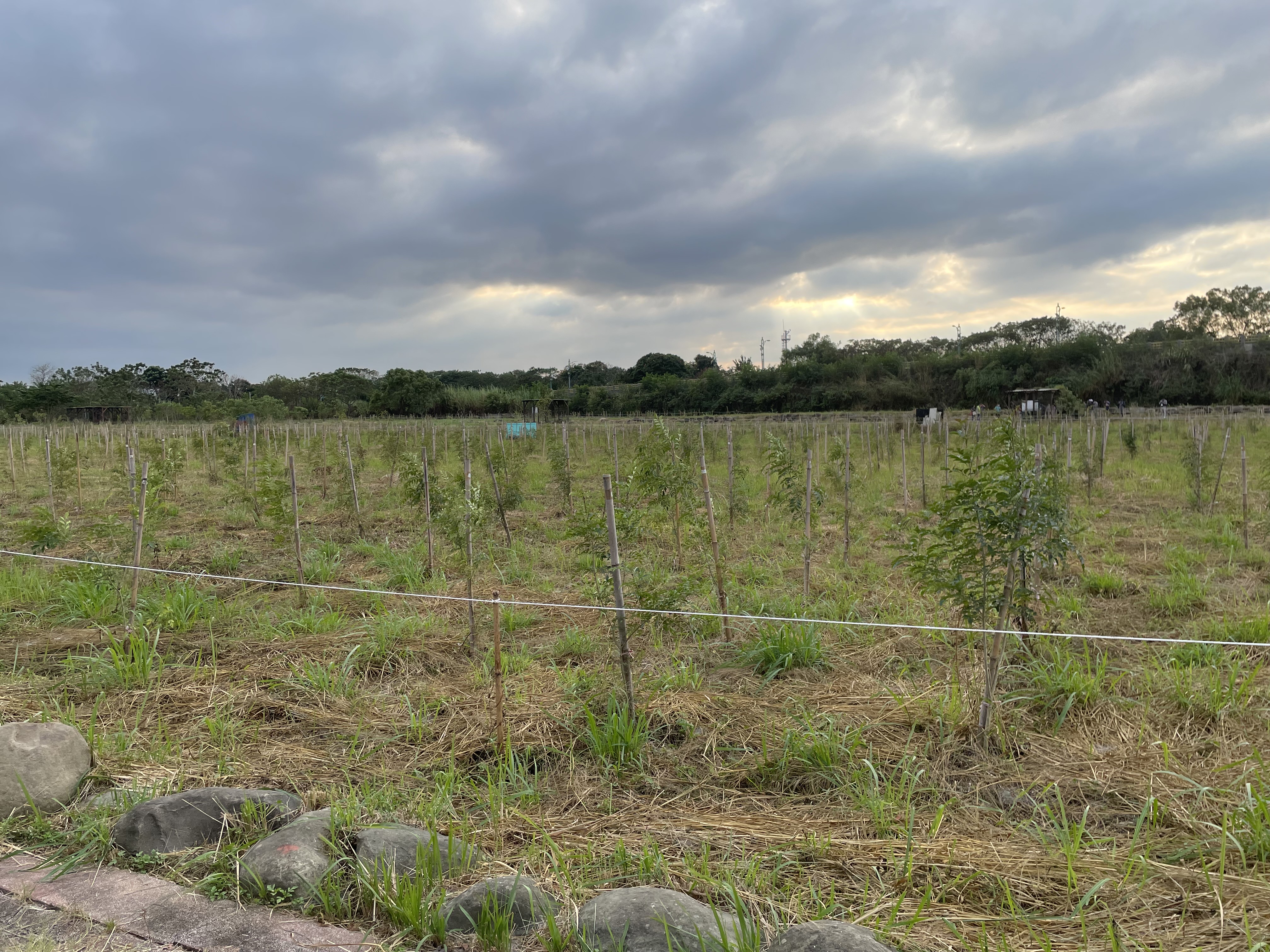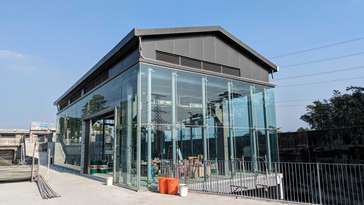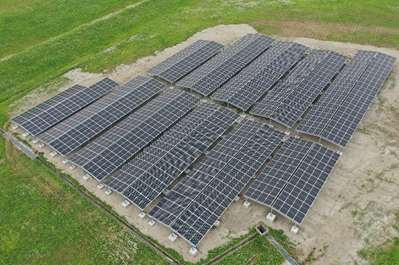Achieving net zero emissions by 2050 is the objective of Taiwan and most countries in the world. Water Resources Agency (WRA) is actively participating in net zero transformation, and formulated specific carbon reduction objectives for each year based on the average total carbon emissions from 2019 to 2021. The goal is to achieve long-term carbon neutrality by 2050 through the reduction of engineering carbon emission, increase of tree planting for carbon sequestration and green energy.

In response to the 2050 net zero emissions objective, Water Resources Agency has proposed the following three major responsive measures:
- Carbon reduction of hydraulic engineering to head towards carbon neutrality:
Develop carbon reduction strategies for each stage of the engineering life cycle (planning, design, construction, and operation), including low-carbon construction methods, carbon reduction designs, the use of green and recycled materials, improvement of construction specifications, and environmental carbon sequestration. Precisely implement total carbon emissions control and work towards the goal of carbon neutrality by 2050.

Engineering Systematic Carbon Reduction Certification Ceremony
- Strengthening land afforestation to increase carbon sequestration effectiveness:
By integrating ongoing projects such as “Greening and beautifying environment construction”, “Prevention and control of riverbed dust” and “Encouragement for private sectors to afforest on state-owned land”, the planting capacity was continuously enhanced in 2023, resulting in an increased planting area of 183 hectares. In addition to benefiting the environmental greening and beautifying, it also enhances the carbon sink. Three sites are selected for the application to the Environmental Protection Administration for the offset program registration of "Afforestation and Reforestation", including "Tonquze River landscaping field", "Beiyuan Park of Shimen Reservoir", and "Zhongzhuang Retention Basin Park”.


- Reservoir hydropower to support green energy network:
WRA refine the delicate high water level operations in reservoirs, review water-saving dispatch measures on a rolling basis depending on water conditions, and adjust power generation without wasting water resources to support the green energy power supply network. Through continuing to collaborate with Taiwan Water Corporation to develop water-based photovoltaic systems, including 5 reservoir sites (Jiji Weir, Hushan Reservoir (2 sites), Niaozuitan Artificial Lake, Zengwen Reservoir) and 2 regional drainage sites (Desheng River, Houzhuang), it is expected to increase the installed capacity by around 25.6 MW by 2025. WRA also cooperates with Taiwan Power Company, Taiwan Water Corporation, and private sectors to promote small hydropower systems to increase power generation capacity. So far, a total of 19 sites have been promoted, which are expected to generate an additional 33.6 MW by 2025 in order to achieve the optimal synergy of energy saving, green power, and carbon reduction.

